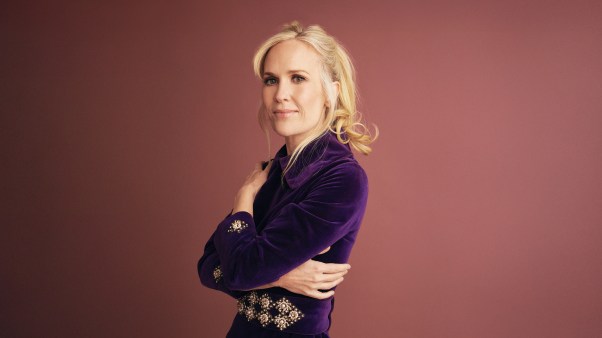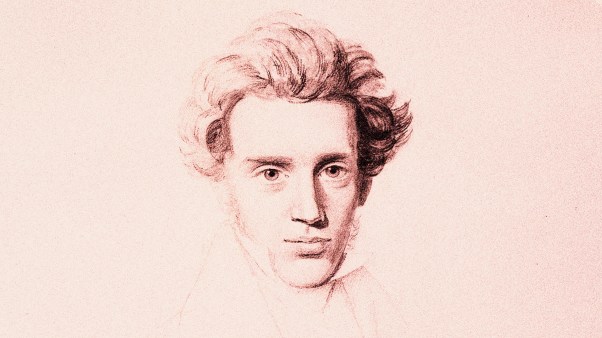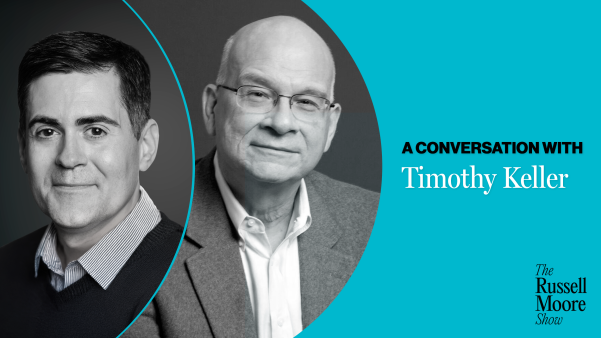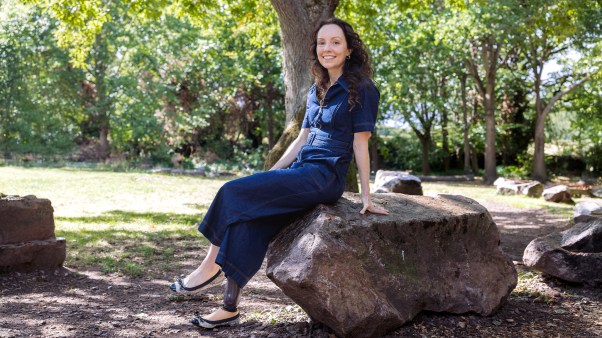It didn’t sound right to Abilene Christian University president Phil Schubert.
Professor Rusty Towell was telling Schubert over lunch a few years ago about nuclear reactors that use molten salt instead of water as coolant. Towell, who teaches engineering and physics at the Church of Christ school in West Texas and has a background in nuclear engineering, certainly sounded like he knew what he was talking about. But he said this alternative technology could produce cheap, clean, reliable energy. And it was safer than other nuclear processes. And the byproducts would be clean drinking water and isotopes that are useful in medicine.
Better yet, the technology was already proven to work. American scientists built such a reactor at the Oak Ridge National Laboratory in Tennessee and operated it successfully from January 1965 to December 1969.
“Rusty, if this really is that good,” the college president said, “why isn’t somebody already doing it?”
“I don’t know,” Towell responded. “They’re just not.”
Schubert remembers thinking, There’s no chance.
But what if there were? And what if Abilene Christian could lead the way with new research on transformative technology that could help move America beyond its dependence on fossil fuels, pump clean energy into the world, make electricity available in places that currently don’t have it, and lift people out of poverty?
This is amazing technology, he thought, and we would get to be right in the center of research that fits our Christian mission to a tee.
He was persuaded enough to greenlight Towell’s research proposal.
“You know what,” Schubert told Towell, “if you guys are passionate about this, I’m willing to help you get started.”
Today, Abilene Christian, in partnership with several other universities and with support from the US Department of Energy, is developing plans to construct a molten salt nuclear reactor that are currently under review by the Nuclear Regulatory Commission.
The school has built a $23 million facility to house the reactor and expects approval to start work on it in May 2024. Building that should take about 18 months, and then the school will apply for approval to operate it. The team hopes to fire up the first reactor in late 2025 or early 2026.
It will be a prototype that can be studied. The team of engineers, which includes a group at Abilene Christian and engineers and technicians at Texas A&M University, the University of Texas at Austin, and the Georgia Institute of Technology, will work to figure out how to bring more reactors online and connect them, ultimately, to the power grid.
“‘This is exactly what the US needs to be doing so we don’t fall behind China and Russia,’” Schubert recalls a Department of Energy expert telling him in 2018 or ’19. “‘I can’t believe you guys are going after this. I love it. When can you get a team to come up to DC and brief my entire team in nuclear?’”
Nuclear energy is nothing new. About 20 percent of America’s electricity since the 1990s has been produced using the technology. But the current model is based on systems that use water to transfer the heat that produces electricity.
While water serves the intended purpose, as soon as it warms, it can flash to steam, Towell explained. As a result, the system must be able to withstand extremely high pressure.
“That’s really the danger behind the current nuclear power plants, that high pressure,” Towell said. “When you use molten salt, it doesn’t ever want to flash to steam.”
Molten salt reactor systems also promise to be cheaper. Towell envisions small modular systems that can be deployed and set up quickly, addressing needs throughout the country and around the world.
“We want to meet those basic needs of people,” Towell said. “That’s the long-term vision. Obviously you can’t meet that until you have the ability to deploy these rapidly.”
Another man who really believes in this vision is Doug Robison. A third-generation oil and gas man whose children attend Abilene Christian, Robison was a few months away from retirement from ExL Petroleum, where he was a partner and cofounder. He heard Towell’s presentation on the potential for nuclear energy in 2017.
Robison was interested in alternatives to coal and oil. But he didn’t think most were practical. He’d served on a Texas Energy Planning Council in 2004, and the subcommittee he chaired was focused on energy production. It concluded that solar and wind power couldn’t effectively replace carbon-based options.
If Texas wanted to move away from carbon fuel, he thought that the best choice—maybe the only choice—was nuclear power.
Robison approached Towell in a back room after his talk.
“If you were fully funded,” he asked, “what could you do?”
Towell asked for two weeks to come up with a research plan. At the end of two weeks, he made his proposal, and Robison agreed to give a $3.2 million donation to the school to fund the research. He told CT he thought it would be an interesting project, would be meaningful, and would make the world a better place.
“God has given us an opportunity to use wealth and to use abilities and scientific understanding and all of that to carry out what is a uniquely Christian mission,” Robison said. “This is something that is so important that we need to do everything possible to make this successful.”
Some evangelical climate activists see a Christian college pursuing nuclear power as a positive development too.
Jessica Moerman, a climate scientist and the president of the Evangelical Environmental Network, said she’s optimistic about Abilene’s research. She previously worked on science and technology policy at the Department of Energy, and her grandfather worked as a nuclear engineer.
“I think these investments are incredibly important, and I’m just really glad to see a Christian university is a part of that lead team and helping lead the way there,” she said. “We need it not only for climate but also for clean air, clean water, for our health right now.”
Carbon emissions—which a majority of scientists say are increasing the atmospheric concentrations of greenhouse gases, causing a rise in the global mean temperature—have also made it harder to breathe. Worldwide, roughly 6.7 million people die every year from air pollution.
“If we had done these investments in these technologies decades ago, we would be much further along on our path towards clean energy and ensuring that we have clean air and clean water and a safe climate,” Moerman said.
A growing share of Americans support new developments of nuclear power, but many people still worry about potential accidents, conjuring images of Chernobyl, Three Mile Island, or more recently, Fukushima. There are other ethical challenges too, such as the fair use of and compensation for resources and the disposal of waste.
According to Towell, the biggest challenge for Abilene right now is getting government approval to fire up a reactor. It’s not every day that happens at a university—not to mention a school with about 5,000 students, 272 professors, and a century-old commitment to “purposeful learning and enthusiastic devotion to Christ.”
Beyond that, there are some technical questions about how the reactor will work, since this is new technology for the regulators. But Robison, the lead donor to the project, is confident enough that he’s put more money into the project as an investor. He has founded a company, Natura Resources, and is funding the research in exchange for an agreement that gives him the option to license future discoveries for profit.
And Schubert, the once-skeptical president who says he’s heard more than his share of research proposals that don’t seem grounded in reality, has become a believer.
“I know that what these guys have envisioned can be achieved,” Schubert said, “and that we can be the ones to achieve it.”
Adam MacInnis is a reporter in Canada.













